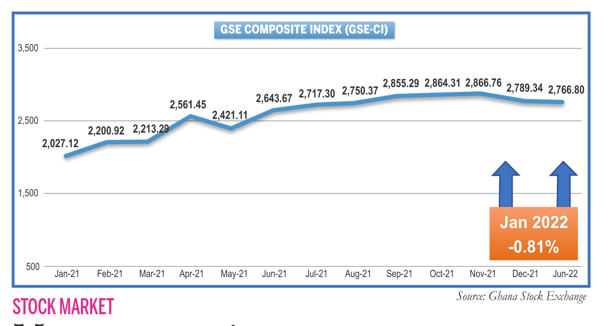Data published by the Bank of Ghana have shown that consumers’ appetite for Internet banking has started slowing down.
An analysis of the Summary of Economic and Financial data (January 2022) indicates that the growth rate of Internet banking – both in terms of value and volume – slowed in December, compared to the previous two months in the last quarter of the year.
While there was a nominal increase in the value of transactions (from GH¢5.7billion to GH¢5.9billion), the rate of growth dropped to 3 percent in December from the 13 percent and 14 percent recorded in October and November 2021 respectively. The same trend was observed in the volume of transactions, where the growth rate saw a decline to 10 percent in December from the 11.3 percent it recorded in November.
This, among other reasons, suggests a change in customer behaviour that reflects negative sentiments toward using the online banking platform to transact business, following finance minister Ken Ofori-Atta’s announcement in the 2022 budget last November of the planned introduction of a 1.75 percent electronic levy (E-levy), which will be applied on all electronic payments made within the financial system.

Commenting on the development, a bank manager with a state bank – who pleaded anonymity as he is not allowed to speak publicly on the matter, affirmed the analysis of this paper: saying ever since the finance minister announced the E-levy, customers have started showing some apprehension toward use of the bank’s online banking platforms, even though the law to pass the levy is not yet in force.
He said some customers and friends have been asking him what other alternatives means exist for them to avoid the E-levy once Parliament passes it – adding that the present behaviour of customers sends a strong signal that implementing the levy will erode the hard work banks have put in to encourage the use of digital platforms.
Also commenting on the development, banking consultant Dr. Richmond Atuahene agreed with the assertion that the decline in growth of online banking activities can, among other factors, be linked to customers’ disaffection and disapproval of the E-levy.
“Other factors can also be counted among the reasons for the decline in growth of online banking. But once the analysis shows a sharp decline in December from November, then obviously the E-levy announcement has something to do with that. It means customers are not ready to bear that cost, and so they have started reducing their use of the online platforms. We can’t completely rule that fact out,” he said in an interview with the B&FT.
Online banking is not the only platform to experience some negative reaction from customers ever since the budget was read, as the same data shows the largest payment platform, mobile money, has also seen a drop in value of transactions by GH¢3.2billion in that same December – representing a 3.8 percentage points decline.
Prior to the finance minister announcing the introduction of a 1.75 percent E-levy in November, the value of mobile money transactions had just increased to GH¢80billion in October from GH¢71.7billion in September; and that is more than 10 percentage points increase between the two months.
Besides this, the volume of transactions also shows there is some kind of apprehension from some customers in using the mobile money platform, as it recorded a 300,000 increase in December, representing 0.75 percentage point growth from November. However, compared with September and October, there was a 700,000 increment in volume of transactions, which represents 1.74 percentage points growth.










